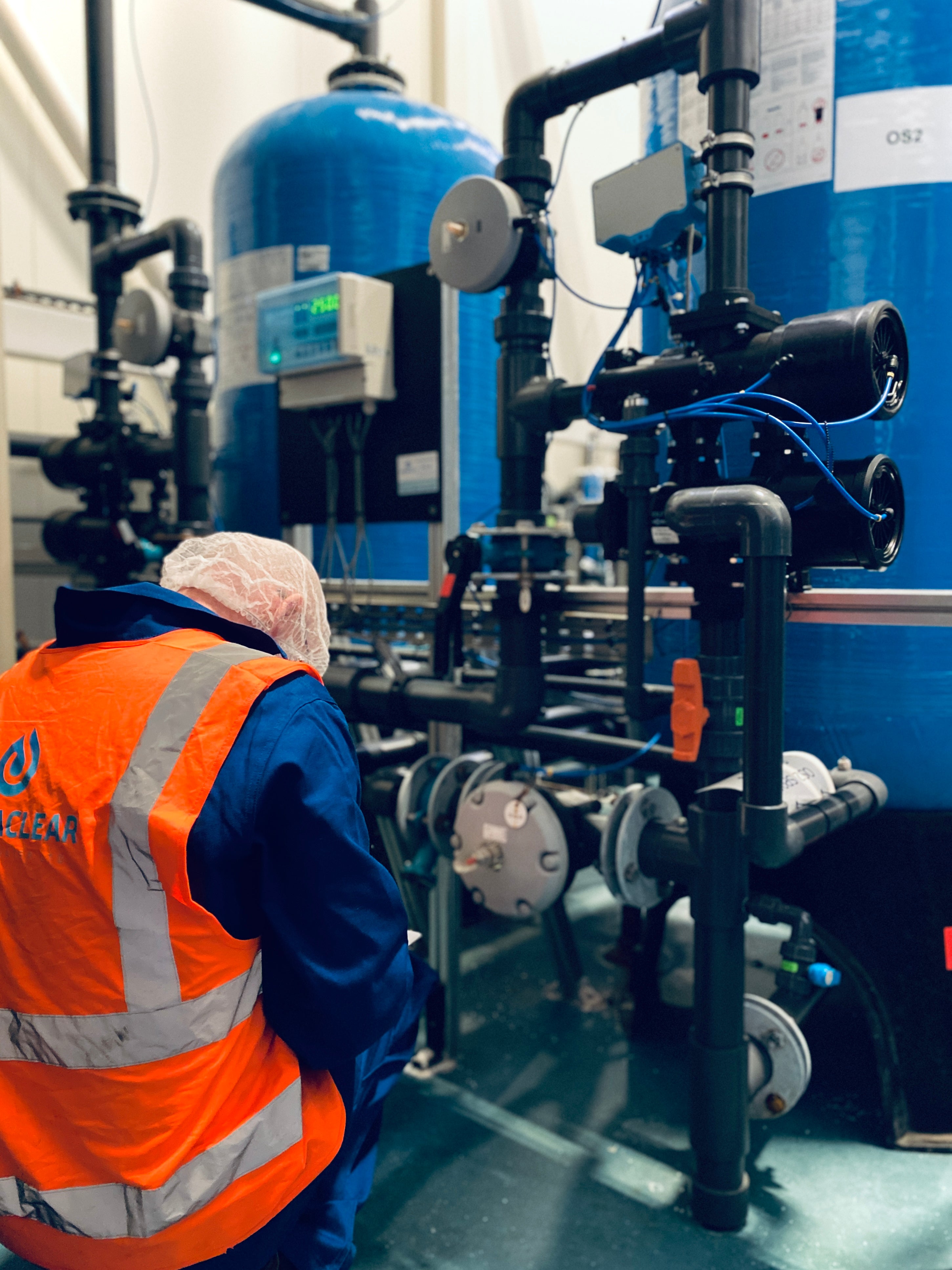Here we investigate the quantitative aspects of water treatment in industrial processes within the UK, focusing on the impact on product quality, environmental sustainability, and operational savings. We present statistical data and economic indicators such as Compound Annual Growth Rate (CAGR) to emphasize the importance of water treatment. The analysis demonstrates how water treatment can enhance boiler efficiency, energy consumption, and water quality while reducing operational costs and the environmental footprint under UK regulations.
Water treatment is a vital component of industrial processes, ensuring the efficient use of water resources and compliance with environmental regulations in the UK. With growing pressure to reduce their ecological footprint, industries are increasingly recognizing the value of water treatment. In this paper, we discuss the quantitative benefits of water treatment in the UK, focusing on product quality improvements, environmental benefits, and operational savings.
- Product Quality Improvements through Water Treatment
The global water treatment market is projected to grow at a CAGR of 6.7% from 2021 to 2028, reflecting the growing demand for high-quality process water in various industries (Grand View Research, 2021). Water treatment technologies such as filtration, ion exchange, and reverse osmosis can enhance product quality by eliminating contaminants and maintaining consistent water quality.
2.1. Role of Water Treatment in Improving Product Consistency
A study by the Water Quality Association (WQA) found that industries implementing water treatment reported a 20% improvement in product consistency (WQA, 2018). This improvement leads to increased customer satisfaction and reduced recalls, highlighting the importance of water treatment in maintaining product quality.
2.2. Preventing Corrosion and Scaling
Water treatment can minimize corrosion and scaling in equipment, resulting in a 15% to 30% reduction in maintenance costs (Global Water Intelligence, 2019). These savings, combined with improved product quality, emphasize the value of water treatment in industrial processes.
Environmental Benefits of Water Treatment in UK Industrial Processes
3.1. Boiler Efficiency and Energy Consumption
Water treatment can enhance boiler efficiency by up to 15% (Carbon Trust, 2020), reducing energy consumption and contributing to a lower carbon footprint. With industrial boilers accounting for approximately 22% of total industrial energy consumption (BEIS, 2019), optimizing boiler efficiency through water treatment is essential for reducing greenhouse gas emissions.
3.2. Water Reuse and Conservation
Implementing water treatment enables UK industries to reuse 50% to 85% of their process water (DEFRA, 2020), significantly reducing freshwater consumption and wastewater discharge. This practice contributes to sustainable water management and helps industries meet their environmental targets.
Operational Savings through Water Treatment
4.1. Reduction in Maintenance Costs
As mentioned earlier, water treatment can lead to a 15% to 30% reduction in maintenance costs (Global Water Intelligence, 2019) by preventing corrosion and scaling in equipment, extending the lifespan of machinery, and minimizing unscheduled downtime.
4.2. Compliance with UK Environmental Regulations
Industries investing in water treatment can save up to £150,000 per year in fines and penalties (Environment Agency, 2020) by achieving compliance with stringent UK environmental regulations and avoiding potential legal consequences.
5. Capital Expenditure Justification and Return on Investment
While the initial capital expenditure for water treatment systems can be substantial, the long-term operational savings, environmental benefits, and improved product quality result in a strong return on investment. A report by McKinsey (2019) found that UK industries implementing water treatment could achieve a payback period of 2 to 5 years. Additionally, a well-planned water treatment strategy can act as a risk management tool, protecting businesses from future regulatory changes and resource constraints.
6. Conclusion
Water treatment in UK industrial processes offers numerous quantifiable benefits, including improved product quality, enhanced environmental sustainability, and operational savings. The global water treatment market's projected CAGR of 6.7% from 2021 to 2028 (Grand View Research, 2021) demonstrates the increasing recognition of water treatment's value across industries. With a 20% improvement in product consistency (WQA, 2018), up to 15% enhancement in boiler efficiency (Carbon Trust, 2020), and significant reductions in maintenance costs (15% to 30%) (Global Water Intelligence, 2019), the advantages of water treatment are clear.
Moreover, water treatment enables UK industries to save up to £150,000 per year in fines and penalties (Environment Agency, 2020) and achieve a payback period of 2 to 5 years (McKinsey, 2019). By investing in water treatment technologies, industries can achieve a competitive advantage while simultaneously reducing their environmental footprint and ensuring compliance with UK regulations. The data presented in this paper emphasizes the value of water treatment in industrial processes and supports the case for prioritizing it as a key component of modern industrial operations in the UK.
As water scarcity and environmental regulations continue to become more stringent, the importance of good water treatment cannot be overstated. The substantial improvements in product quality, environmental sustainability, and operational savings highlight the critical role that water treatment plays in the long-term success of UK industries.
By adopting a proactive approach to water treatment, businesses can remain competitive, resilient, and environmentally responsible, ultimately contributing to a more sustainable future for the UK economy and environment.

